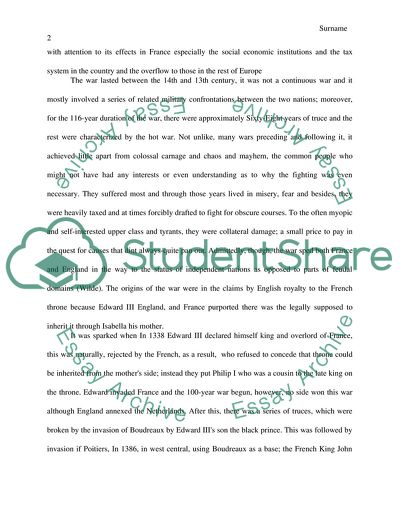Cite this document
(Innumerable Wars and the Current Political Dispensations Case Study, n.d.)
Innumerable Wars and the Current Political Dispensations Case Study. Retrieved from https://studentshare.org/history/1788665-how-did-the-hundred-year-war-affect-the-institutions-and-tax-system-in-france-during-the-14-15-century
Innumerable Wars and the Current Political Dispensations Case Study. Retrieved from https://studentshare.org/history/1788665-how-did-the-hundred-year-war-affect-the-institutions-and-tax-system-in-france-during-the-14-15-century
(Innumerable Wars and the Current Political Dispensations Case Study)
Innumerable Wars and the Current Political Dispensations Case Study. https://studentshare.org/history/1788665-how-did-the-hundred-year-war-affect-the-institutions-and-tax-system-in-france-during-the-14-15-century.
Innumerable Wars and the Current Political Dispensations Case Study. https://studentshare.org/history/1788665-how-did-the-hundred-year-war-affect-the-institutions-and-tax-system-in-france-during-the-14-15-century.
“Innumerable Wars and the Current Political Dispensations Case Study”. https://studentshare.org/history/1788665-how-did-the-hundred-year-war-affect-the-institutions-and-tax-system-in-france-during-the-14-15-century.


